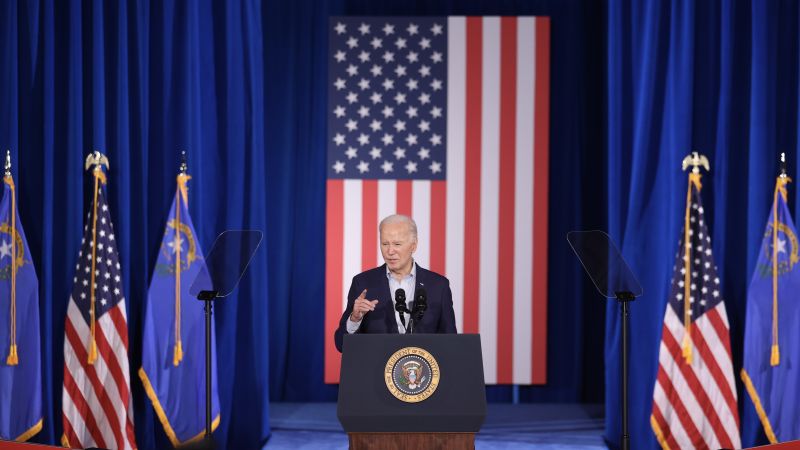White House advisers are closely monitoring consumer sentiment as an economic indicator to gauge the health of the economy amidst persistent inflation, high interest rates, and lackluster wage gains. Consumer sentiment, which measures how average Americans feel about their financial situation and purchasing power, has increased by over 30% since late last year. While there was a slight dip in the first two weeks of April due to higher-than-anticipated inflation, the Biden administration remains cautiously optimistic that the overall upward trend is a positive sign.
Consumer sentiment is compiled by researchers from the University of Michigan through surveys of 600 American households. The data is forward-looking and reflective of how people view their financial situation over the next one to five years, making it a valuable indicator compared to other economic data that reflect past trends. Despite some bumps along the road, the general trend has been positive, according to Jared Bernstein, President Joe Biden’s chief economist.
However, critics argue that the increase in consumer sentiment may be too little too late for Biden’s political fortunes, especially considering the downward trend in sentiment during his term. The indicator is sensitive to inflation, with a recent drop to 77.9 attributed to concerns about rising prices. Consumer sentiment hit a low point in 2022 when inflation peaked, indicating worsening consumer perceptions of their financial situation.
Former White House chief of staff Ron Klain has raised concerns that President Biden is not focusing enough on household financial issues that are driving voters’ priorities. Klain believes that Biden’s economic messaging should emphasize compassion for family budgets and efforts to reduce costs and increase incomes. Other outside economists have also expressed concerns about the high consumer prices and the impact on workers’ wages and cost of living, despite recent improvements in wage growth outpacing inflation.
Voter discontent with the economy remains widespread, with a significant portion of respondents in a poll conducted by the Wall Street Journal viewing the economy as “poor” or “not so good.” While there is a discrepancy between perceptions of the national economy and individual state economies, the overall sentiment remains negative. The Biden administration plans to continue executing its agenda, with hopes that rising household incomes will lead to improvements in economic indicators. However, changing voters’ perception of the economy in a short amount of time remains a challenging task, according to economists like Tomas Philipson.













